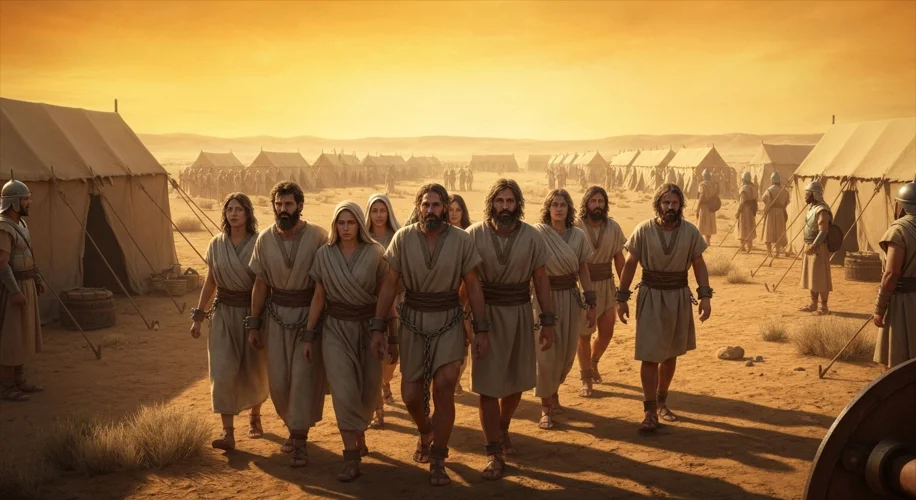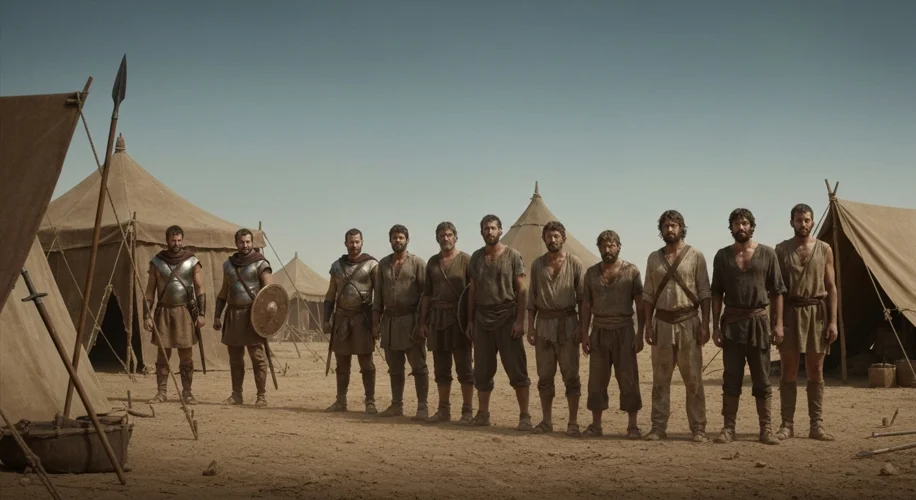The ancient world, often painted with broad strokes of brutality, presents a complex tapestry when examining its approach to warfare and its aftermath. Among the most stark realities of conflict is the fate of those captured. In the Old Testament, a period spanning centuries and encompassing a diverse range of societal structures and theological interpretations, the treatment of prisoners of war (POWs) was far from uniform. While the prevailing narrative might lean towards harshness, a closer look reveals a nuanced picture, hinting at the emergence of rudimentary standards and starkly contrasting instances of mercy and cruelty.
The foundational texts of the Old Testament, particularly the Pentateuch (the first five books), detail numerous instances of warfare among the Israelites and their surrounding nations. These accounts, often imbued with religious significance, describe the spoils of war, including human captives. The early narratives, such as those in Genesis and Exodus, often portray conquered populations being enslaved or assimilated, a common practice across the ancient Near East. For instance, after the Israelites’ victory over the Midianites, Moses instructs them to kill all the male children and all women who had known sexual intercourse with a male, but to keep the virgins alive for themselves (Numbers 31:17-18). This decree, shocking by modern standards, reflects a context where total annihilation of enemy males and the subjugation of females were grim realities of warfare.

However, as the narrative progresses through the books of Joshua, Judges, and Samuel, a subtle shift, or at least a more varied portrayal, begins to emerge. The conquest of Canaan, while often depicted as a sweeping victory, also contains instances where captured cities are spared or treated differently. The story of the Gibeonites, who, through cunning deception, secured a treaty with Joshua and the Israelites, illustrates a calculated approach to diplomacy and the avoidance of unnecessary bloodshed. Instead of outright slaughter, they were spared but relegated to a perpetual status of servitude as water-drawers and woodcutters for the sanctuary (Joshua 9).
The reign of King David, often considered a golden age for Israel, presents further complexity. While his military campaigns were extensive and often brutal, there are moments that suggest a degree of restraint or strategic calculation in dealing with captives. For instance, after a victory over the Ammonites, David’s army subjected them to horrific treatment, forcing them through brick kilns (1 Chronicles 20:3). Yet, in other contexts, David demonstrates a more measured approach. When facing the Edomites, his commander Joab ordered the extermination of all males in Edom, but a young fugitive, Hadad, escaped to Egypt (1 Kings 11:14-22), suggesting that even amidst widespread destruction, individual escapes or perhaps a lack of complete zeal in execution could occur.
Later biblical texts, particularly the Prophets, often condemn the mistreatment of the vulnerable, including foreigners and captives, within Israelite society. Prophets like Isaiah and Jeremiah decry the injustices perpetrated by the powerful and call for compassion, even towards those who had been enemies. This prophetic voice, while not directly dictating policy on POWs in every instance, reflects a growing ethical consciousness that questioned the unrestrained brutality of warfare.
What emerges from these accounts is not a consistent, codified policy on POW treatment, but rather a dynamic interplay of cultural norms, theological imperatives, and strategic considerations. The early period seems to lean towards harsher practices, possibly influenced by the surrounding cultures and the existential nature of their struggles for survival and territory. As the Israelite nation matured and developed its legal and religious frameworks, a tension arose between the exigitabilities of war and the growing emphasis on justice and mercy within their covenant relationship with God.
Ultimately, the Old Testament’s portrayal of prisoners of war offers a window into the evolving moral landscape of an ancient people. It demonstrates that even in an era defined by stark power dynamics and frequent conflict, the seeds of concepts like clemency, strategic negotiation, and a fundamental call for justice were present, albeit often overshadowed by the grim realities of the battlefield.

